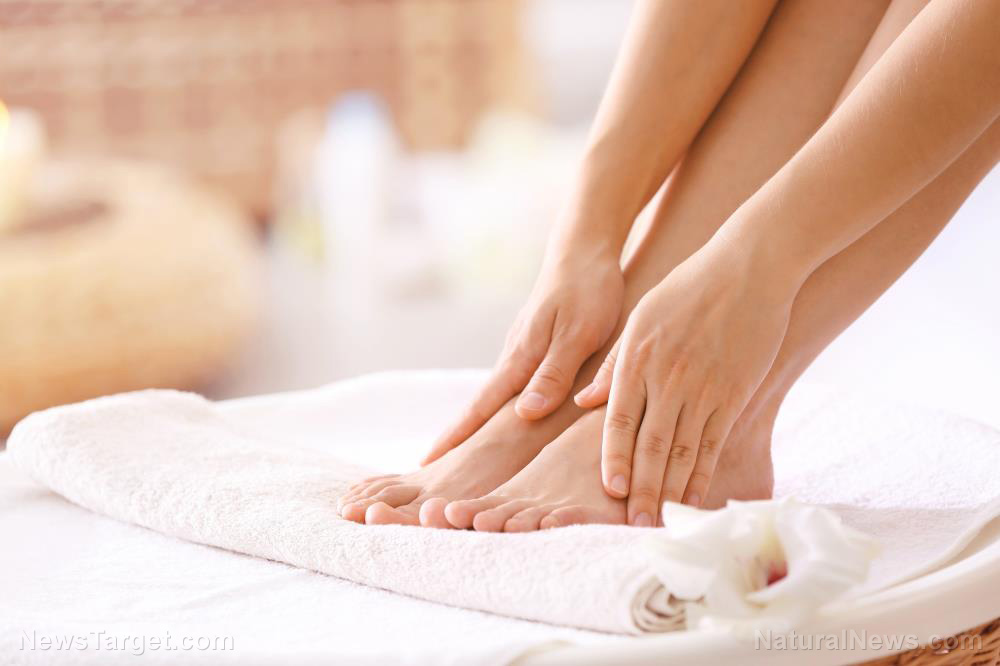Practice these natural steps for taking care of your teeth and gums
07/31/2019 / By Edsel Cook

Oral hygiene is not just about maintaining the cleanliness of the teeth and gums. It also contributes to the general well-being of a person. By ensuring good oral hygiene, people can support their overall health.
Tooth and gum problems can cause pain, undermine self-confidence, and lead to the loss of tooth. Patients may also become malnourished, experience speech impediments, and suffer from lower quality of life.
To help forestall these problems, people should brush their teeth twice a day in the correct manner. Move the toothbrush in small circles over the front, back, and top of each tooth. Never brush back and forth in a sawing motion.
Preserve tooth enamel and the gums by brushing gently with a soft-bristled toothbrush. This also reduces the risks of sensitive teeth, permanently damaged enamel, and gum erosion.
Get a new toothbrush every three months or when the ends of the bristles begin to fray. (Related: Dentists may soon be able to repair and rebuild teeth rather than drilling and filling.)
Always floss, don’t fear the dentist, and avoid smoking
A toothbrush will not be able to reach bacteria, dirt, food, and plaque between the teeth. Clean those tight spaces with a dental floss once a day. Regular flossing helps prevent bad breath.
Be gentle when pressing the floss between the teeth and down the gum line. Slowly move the floss up and down while making sure it touches both sides of a tooth.
People can avoid hurting themselves and get rid of plaques efficiently by avoiding snapping the floss up and down between the teeth.
Every six months, schedule a routine dental exam with a reliable dental care provider. If a person thinks his mouth feels different, he should visit a dentist ASAP.
Get examined for any signs of oral issues like tooth cavities, gum disease, and mouth cancer. A visit to the dentist usually involves a cleaning session that gets rid of any plaque and tartar missed by brushing and flossing.
Adults who practice correct oral hygiene and have a low risk of developing oral health issues may not need to visit their dentist very often. However, children and adolescents should not skip their dental check-ups.
A smoker should quit the bad habit while non-smokers need to steer clear of it. Smoking causes discoloration of the teeth and tongue, adds an unpleasant smell to a person’s breath, and increases the risk of gum disease.
Use natural mouthwash while avoiding food and drinks with sugar or starch
Using an antibacterial mouthwash may make brushing and flossing more effective. The active ingredients in antibacterial mouthwashes can help control gingivitis and plaque.
Look for oral solutions that use certain essential oils or natural antibacterials. These natural mouthwashes also have gentler effects on the mouth.
Oil pulling is the Ayurvedic equivalent of using a mouthwash. It naturally whitens teeth, prevents bad breath, helps control blood pressure, and doesn’t cause adverse effects.
Prevention is the best cure. Since sugar and starch contribute to tooth cavities, people should reduce the amount of sweet and starchy foods in their diet.
Candies, desserts, and processed foods have high amounts of added sugar. For starchy foods, the worst offenders are breads, chips, crackers, and pasta.
Instead of these foods, eat more fruits and vegetables which are rich in dietary fiber. Fibrous foods increase the feeling of fullness.
Likewise, avoid consuming sugar-sweetened drinks. Juices, sodas, and similar beverages account for a lot of added sugars in American diets.
Like their food equivalents, sugar-rich drinks can cause cavities and other health problems. Slake thirst with water or unsweetened tea instead.
Sources include:
Tagged Under: alternative medicine, antibacterial, badteeth, brushing, cleanliness, dental care, dental floss, dental health, Flossing, gum disease, gum health, gums, Holistic Dentistry, mouth cancer, mouthwash, mouthwashes, natural cures, natural medicine, oil pulling, oral health, oral hygiene, plaques, prevention, smoking, starch, stop smoking, sugar, sweet drinks, teeth, tooth cavities
RECENT NEWS & ARTICLES
COPYRIGHT © 2017 PREVENTION NEWS



















